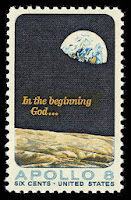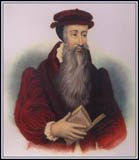
Recently I had an email conversation about female pastors with one of my former pastors from my Pentecostal days. (He was about to ordain a slew of them.) I asked him about it on Facebook because back when I attended his fellowship he disallowed female pastors. “Why the change?” I asked.
What follows is my response to his reasoning. Please note that although I’m only referring to pastors (teaching elders, 1 Tim. 5:17), my case equally applies to ruling elders.
Your question:Where in Scripture does it say that women can be Pastor's? My simple answer is Eph.4:7-8 -...and HE gave gifts to "MEN"- meaning all mankind..Eph.4:11-12 -and He Himself gave some to be Apostles, some Prophets, some Evangelists, and some to be Pastors and Teachers. 12-For the equiping of the saints for the work of the ministry."
. . . Our Qualifications are: That they are GIFTED by God to lead in the area they are called on, Submitted to their husband, DWC discipleship, Faithfulness of Service, Understanding the DOCTRINE OF GRACE and RIGHTEOUSNESS through Faith in Jesus Christ and Last of all EXPERIENCE.
Greetings, “Bob.” First, you’re right: He does give gifts to “men” (general), but I’m sure that you would agree that he does not give all people the same gifts. God does, however, call people to ministry (Eph. 4:7-8) and provide those called with the needed gifts to fulfill that ministry (Eph. 4:8). Of course, for this discussion, if God does not allow women to be pastors, then he’s not calling them to that office nor is he so gifting them (although they might have similar gifts, like teaching). So first we need to answer the question of whether or not God allows female pastors before we can move on to calling and gifting.
There are a few verses that speak directly to this issue. Consider Paul instructing the young pastor, Timothy, in I Tim 2:
11) A woman must quietly receive instruction with entire submissiveness.
12) But I do not allow a woman to teach or exercise authority over a man, but to remain quiet.
Paul’s letter to Timothy is meant as a guide to how a church should operate. In the above passages, Paul is telling Timothy that women should respect the governing role of the church officers. Since they are being forbidden from teaching or exercising authority over the men in the church, women may not have that governing role. (By the way, I do think women can teach in a non-authoritative role, like Priscilla did in Acts 18:26; and I also don’t think that they are restricted when it comes to public prayer or other types of edifying proclamations: I Cor. 11:15.)
Paul finishes chapter 2 by grounding the functional hierarchy of the church in creation. He then continues his instruction in chapter 3 by providing the qualifications for a pastor:
1) It is a trustworthy statement: if any man aspires to the office of overseer, it is a fine work he desires to do.
2) An overseer, then, must be above reproach, the husband of one wife, temperate, prudent, respectable, hospitable, able to teach,
3) not addicted to wine or pugnacious, but gentle, peaceable, free from the love of money.
4) He must be one who manages his own household well, keeping his children under control with all dignity
5) but if a man does not know how to manage his own household, how will he take care of the church of God?,
6) and not a new convert, so that he will not become conceited and fall into the condemnation incurred by the devil.
7) And he must have a good reputation with those outside the church, so that he will not fall into reproach and the snare of the devil.
Paul here is not using “man” or “he” in the general sense, especially since these passage follow directly after he specifically talked about women in the church (unless those are to be taken that way too). It is men who are called to “be the husband of one wife,” and it is men who God holds ultimately responsible for the managing of the household and the upbringing of the children. Likewise, God holds the pastors responsible for His household.
Consider the flow of Paul’s thought: women may not teach or have authority over men in the church, followed by the qualifications for the pastorate, which are directed solely to men.
Paul makes the same case in the first chapter of Titus, where he again directs it to only men (husband of one wife, etc.). After completing his teaching about pastors, he starts chapter 2 by giving instructions to “older men” (vs. 2) and “older women” (vs. 3), followed by instructions to young men and bondservants. He finishes the chapter by saying that “. . . the grace of God that brings salvation has appeared to all men” (vs. 11). I mention this because he has switched to the general use of “men.” Before this passage, he was directly addressing specific groups.
Well, that’s it in a nutshell. I might be totally wrong about this, but it seems to me that the case against women being pastors is pretty strong (especially when you add to the mix the example of Scripture—from the Aaronic priesthood, to the apostles, to a young pastor like Timothy). Something to chew on, at least.
--The Catechizer
Labels: Doctrine of the Church

























